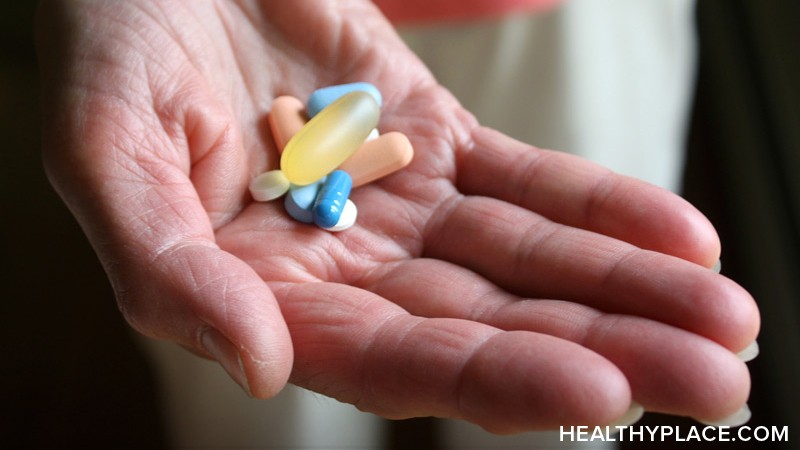The Future of Bipolar Treatment: What I Hope Will Change

Receiving treatment for bipolar disorder is necessary, but there are many obstacles to overcome when finding the right regiment. For one, the side effects of bipolar medication are extreme. I've even considered quitting my medications for bipolar 2 disorder because of that.
Another problem is the process of finding a psychiatrist that considers your needs and wants can be exhausting. People often ask me, "Why is it so hard? Don't they just prescribe you the necessary medication to make you feel better?" No, it's not the way it works.
The future of bipolar treatment is unclear, but these are some of the changes that I hope medical professionals will consider addressing when the time comes.
Bipolar Medication Causes Excessive Sedation
Bipolar medication that causes excessive sedation is no fun for anyone. When I went to the mental hospital, I was so sedated I could not even see where I was walking. It made sense when I entered the hospital, but I was apprehensive when those particular medications were prescribed to me once I was released. (3 Reasons I Questioned Taking Bipolar Medication)
When I worked as a nanny and was still in the process of experimenting with finding the medications for bipolar for me, there were a couple of times I had to pull the car over with the children because I felt drowsy. There have been times where my family has seen my head and eyes rolling back and I was almost drooling like a baby.
It is true that there needs to be a sedative aspect to bipolar medication for many people, and I have been heavily sedated after a severe hypomanic episode. I do not question the methods of doctors or think their intentions are malicious; I fully admit that I could not live without them. I am very grateful for the resources they provide. However, not being able to move, communicate clearly with people or drive a car for a lengthy amount of time is far from well-balanced. It is not a form of stability, its a kind of silencing.
Open Communication Between Psychiatrist and Patient About Bipolar Treatment
One of the biggest problems I had when searching for treatment of bipolar 2 disorder was the lack of open communication between the psychiatrist and I. It got so bad at one point; I ran out of an office hysterical in tears. I told the psychiatrist, I didn't want to take medication that made me drowsy and wanted to feel "energized." She accused me of trying to persuade her to give me stimulants and threatened to report me.
Recently, I went to California for a workshop with other mental health advocates. We were asked to share what has helped us with managing our bipolar disorder. One woman praised her psychiatrist, and when asked what made this doctor different from the others, she answered: "She saw me!"
It had nothing to do with her psychiatrist's flexible schedule; it meant that the doctor listened with her mind, as much as she listened with her heart. Their open lines of communication helped the psychiatrist to understand how she defined happiness. It is necessary to increase awareness of the issues we face with bipolar treatment to better not only ourselves but those who work in mental health as well. As the woman from the advocacy workshop said, we need people to see us for who we are, not for what we have.
APA Reference
Blum, H.
(2017, September 26). The Future of Bipolar Treatment: What I Hope Will Change, HealthyPlace. Retrieved
on 2025, December 6 from https://www.healthyplace.com/living-with-bipolar-blog/the-future-of-bipolar-treatment-what-i-hope-will-change
Author: Hannah Blum
1.) I want to see an emphasis on lifestyle changes ever medications. Diet and exercise are very important in controlling bipolar. Ten cups of coffee a day is not healthy. Neither is a day packed with sugar and sugar substituted foods such as sucralose and aspartame. 2.) i want the tag "disorder" dropped. Many of our most creative people are bipolar. Neurodiversity over disorder.